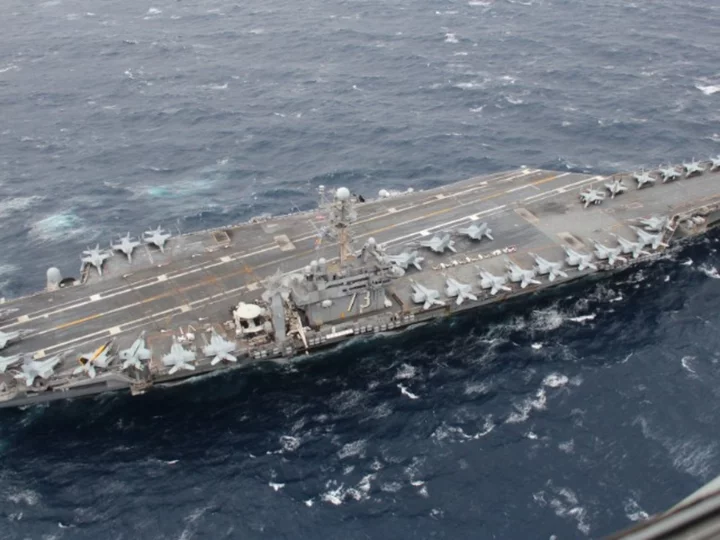A monthslong investigation into a series of Navy suicides last year found the service failed to provide a basic quality of life for sailors, housing them in unacceptable living conditions and failing to provide adequate mental health resources.
The investigation concluded that the issues were compounded on the USS George Washington, a nuclear-powered aircraft carrier going through overhaul in the Newport News shipyard in Virginia, because of the lengthy refit process, which was delayed as the Navy shifted its priorities to other ships.
Ultimately, sailors from the ship told CNN they were forced to move on board the ship before it was ready, leaving the crew facing power outages, a lack of hot water, and unbearable temperatures.
"It was pointedly obvious that the Navy had failed the George Washington through a host of things that we put that ship into," said Navy Fleet Forces Commander Adm. Daryl Caudle in a briefing to reporters Thursday.
The Navy's top leaders said the blame for the suicides on board the carrier and at a separate facility in Norfolk late-last year did not fall on any single commander or leader.
"Collectively, Navy senior leadership, officer and civilian, let our standards slip -- and in doing so we let our people down," wrote Navy Secretary Carlos Del Toro and Navy Chief Adm. Michael Gilday in a memo following the conclusion of the investigation.
In response, the Navy's top leaders committed to addressing quality of life issues for sailors -- first at shipyards, then across the service.
In April of last year, three sailors from the USS George Washington crew died by suicide within one week. A Navy investigation found that the deaths were "not related or connected," but were the result of "unique and individualized" challenged facing each individual sailor, coupled with a "readily available" means to die by suicide and an "impaired mental state."
Then in December, four sailors at the Mid-Atlantic Regional Maintenance Center (MARCMC) died by suicide within a month. A Navy investigation found there was no "direct correlation or connection" between the deaths, nor was there a toxic climate within the command. The newly-released investigation, which is separate from the broader investigation into quality of life issues and more, did find there were missed opportunities for supervisors to intervene.
The suicides put additional pressure on the Pentagon to implement the Brandon Act, a law requiring the Defense Department to provide mental health resources. The law is named after Brandon Caserta, a 21-year-old sailor who took his life at Naval Air Station Norfolk in 2018. The implementation of the law, required as part of the 2022 National Defense Authorization Act, was delayed by more than a year until it was finally signed earlier this month.
Caudle made no excuses for the Navy's failure to address quality of life issues before they contributed to a series of suicides.
"I am never going to try to give you a reason why it takes a large mishap, incident, 9/11 event to make the Navy -- my organization which I love -- wake up and attack a problem that we should've seen coming," said Caudle. "I'll just tell you there is no excuse for that."
As part of a series of 48 recommendations, Caudle said the Navy should define when a ship is habitable, provide adequate housing and facilities before sailors move aboard a ship, and have more mental health resources available for sailors.
For the first time, the Navy also wants to develop a standard for what it calls "quality of service," the combination of quality of life and the work experience.
But there is no timeline yet for implementing the quality-of-life recommendations across the service, and the Navy acknowledged it will require additional resources to address the problem.
"Navy [Quality of Service] will not be corrected with the stroke of a pen," Del Toro and Gilday said in their letter.
Editor's Note: If you or a loved one have contemplated suicide, call The National Suicide and Crisis Lifeline at 988 or 1-800-273-TALK (8255) to connect with a trained counselor.

